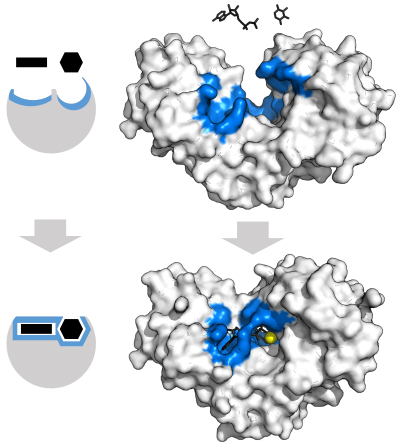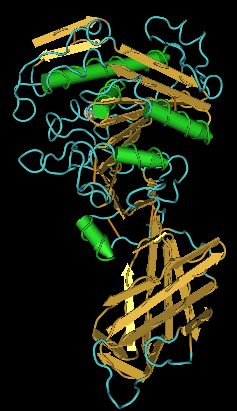Plants are said to be the eukaryotes that are photosynthetic and are from the kingdom of plantae. Thus with regards to the question for do plants have enzymes is true as it is vital for them to have so.
Enzymes are said to be proteins that are larger in size and helps in getting the reaction carrier on in a faster phase. They are seen to be present in all of the living cells being animals, plants and microbes. Thus with regards to the question for do plants have enzymes is true as it is vital for them to have so.
Enzymes tend to be used up for the growth of plants and also gives them the capacity to make energy needed for life. Plants do have enzymes that tend to help them in the bio reactions acting as a biological catalyst supporting all forms of reaction taking place. Thus with regards to the question for do plants have enzymes is true as it is vital for them to have so.
The very reaction that is seen in the plants is the photosynthesis by which they tend to make its food via the help of chlorophyll, sun, water thus having the conversion of light to chemical energy. Thus with regards to the question for do plants have enzymes is true as it is vital for them to have so. This is also a way of the plants to react to the environment.
Do plant cells have enzymes?
Plants are said to be one of the abiotic components that mostly work on its own along with the help of nature.
When said about the human bodies the enzymes tend to speed up the reaction by acting as a bio catalyst in the body with having the dame use in that of the plants. Thus with regards to the question for do plants have enzymes is true as it is vital for them to have so. All of the living beings do have enzymes.
The division of eukaryotes mainly focus on plants and animals with both having much difference physically and internally. Both of them have cell wall yet the cell wall of the plants has a cell membrane that tends to surround the wall. But the animals do only have a cell wall. Similarly, enzymes are there in both. Thus with regards to the question for do plants have enzymes is true as it is vital for them to have so.

Enzymes are said to be the proteins that are special in work that the microbes in the soil use to take in the nutrients that are already there for the plant and the microbes to take in, this is done by having the material that are organic to be broken down into minute molecules for all the plants to take in via the cell wall. Thus with regards to the question for do plants have enzymes is true as it is vital for them to have so.
Do all plants have enzymes?
All of the living ones are said to be having one or more enzymes depending on its use. Thus plants tend to do so. Thus with regards to the question for do plants have enzymes is true as it is vital for them to have so. It has it all
In order to be considered a living being. Amy thing needs to reproduce, breath and make food with these conditions being fulfilled by the plants and thus with regards to the question for do plants have enzymes is true as it is vital for them to have so.
There are many enzymes that are also plant derived like that of the fictin, the papain, the inverstase, the amylase, bromelain, lipoxygenase and much more. These enzymes tend to not just useful to the plants but also to the animals’ life including the human beings. Thus with regards to the question for do plants have enzymes is true as it is vital for them to have so.
The enzymes are the proteins that are active and thus seen in all of the living cells. They are sued in having the biochemical reaction regulated that are seen in making the cell work well and also look into the entire heath of the host cell. Thus with regards to the question for do plants have enzymes is true as it is vital for them to have so.
Where are enzyme present in plants?
Both in animals and plants, all of cells that are alive do have enzymes. Thus with regards to the question for do plants have enzymes is true as it is vital for them to have so.
The place pf the plants to have its enzymes kept in are in the living cell and thus they are said to be in the cytoplasm’. It is a solution that fill all the cell and is thick inside the cell membrane. Thus with regards to the question for do plants have enzymes is true as it is vital for them to have so. It has it all.
Enzymes tend to be much useful to all of the living matters for the proper function of the cell. Cell is said to be the functional life unit and thus enzymes help in the proper function of it. Thus with regards to the question for do plants have enzymes is true as it is vital for them to have so. Enzymes are a need to the plants to help it make food and live.
Sometimes apart form do plants have enzymes, the question for the enzymes secretion can also take place and thus this is also a yes. The plants tend to also secrete the enzymes for digestion from the leaves that are modified. Different plants tend to work it out in separate manner for all parts have different type and shape of leaf to work with.

What are the enzymes available in plants?
If the answer for do plants have enzymes is yes, this also means that there are reactions that occur in the plants for itself to be alive.
The very common process is the photosynthesis which makes food for the plants. There are certain once seen in plants out of which few vitals ones are the
- Cellulose
- Amylase
- Lipase
- Protease
Cellulose
Cellulose is a substance found in the cell walls of plants. Although cellulose is not a component of the human body, it is nevertheless the most abundant organic macromolecule on Earth
Cellulose is an important structural component of the primary cell wall of green plants, many forms of algae and the oomycetes. Thus with regards to the question for do plants have enzymes is true as it is vital for them to have so. It has it all. Cellulose is made up of a series of sugar molecules linked together in a long chain. Since it is a fiber that makes up plant cell walls.
It is seen in all of the plants and also as a source of food. Cellulose, a complex carbohydrate, or polysaccharide, consisting of 3,000 or more glucose units. Cellulose is the main component of paper, cardboard, and textiles made of cotton, flax, or other plant fibers. It is also used for the production of fibers, films, and cellulose derivatives. Thus with regards to the question for do plants have enzymes is true as it is vital for them to have so.
Amylase
Amylases’ main function is to hydrolyze the glycosidic bonds in starch molecules, converting complex carbohydrates to simple sugars. Thus with regards to the question for do plants have enzymes is true as it is vital for them to have so.
There are three main classes of amylase enzymes; Alpha-, beta- and gamma-amylase, and each act on different parts of the carbohydrate molecule. Amylase is present in the saliva of humans and some other mammals, where it begins the chemical process of digestion. Thus with regards to the question for do plants have enzymes is true as it is vital for them to have so.
Alpha-amylase is widespread among living organisms. In the digestive systems of humans and many other mammals, an alpha-amylase called ptyalin is produced by the salivary glands, whereas pancreatic amylase is secreted by the pancreas into the small intestine. The optimum pH of alpha-amylase is 6.7–7.0. Thus with regards to the question for do plants have enzymes is true as it is vital for them to have so.
Lipase
Avocados contain the digestive enzyme lipase, which breaks down fat molecules into smaller fatty acids and glycerol. Although lipase is made by the body, consuming avocados or taking a lipase supplement may ease digestion after a high-fat meal
Lipase is a type of protein made by your pancreas, an organ located near your stomach. Lipase helps your body digest fats. It’s normal to have a small amount of lipase in your blood. But, a high level of lipase can mean you have pancreatitis, an inflammation of the pancreas, or another type of problem in pancreas. Some lipases display broad substrate scope including esters of cholesterol.
Lipase is an enzyme that breaks down fats during digestion. It is found in many plants, animals, bacteria, and molds. Some people use lipase as a useful source. Since lipase breaks down fat into smaller pieces, it is possible that lipase supplements might make digestion easier. Thus with regards to the question for do plants have enzymes is true as it is vital for them to have so. Some of these display phospholipids, and of lipid-soluble vitamins and sphingomyelinases.

Protease
These enzymes are proteases, which break down protein into its building blocks, including amino acids. This aids the digestion and absorption of proteins. Thus with regards to the question for do plants have enzymes is true as it is vital for them to have so.
Proteolytic enzymes or the proteases are enzymes that break down protein. These enzymes are made by animals, plants, fungi, and bacteria. Proteolytic enzymes break down proteins in the body or on the skin. This might help with digestion or with the breakdown of proteins involved in swelling and pain. Thus with regards to the question for do plants have enzymes is true as it is vital for them to have so.
Proteases, being themselves proteins, are cleaved by other protease molecules, sometimes of the same variety. This acts as a method of regulation of protease activity. Thus with regards to the question for do plants have enzymes is true as it is vital for them to have so. This might help with digestion or with the breakdown of proteins involved in swelling and pain.
What enzymes are in photosynthesis?
Photosynthesis is a process used by plants and other organisms to convert light energy into chemical energy that, through cellular respiration, can later be released to fuel the organism’s activities
Enzymes are biological catalysts. The reactions of photosynthesis, and many other biological processes, are controlled by enzymes. Enzymes are required for most of the chemical reactions that occur in organism. Thus with regards to the question for do plants have enzymes is true as it is vital for them to have so. Enzymes are a need to the plants to help it make food and live. Some are-
- NADP-malic enzyme (NADP-ME)
- Pyruvate
- RUBISCO
- Phosphoenolpyruvate carboxylase (PEPC)
- Phosphate dikinase
The reactions of photosynthesis, and many other biological processes, are controlled by enzymes. Enzymes are required for most of the chemical reactions that occur in organisms. Thus with regards to the question for do plants have enzymes is true as it is vital for them to have so. It has it all. Carbonic anhydrase, an enzyme which catalyzes the reversible hydration of CO2, is a major protein component of most photosynthetic microorganisms and higher plant tissue
One by one, three molecules of carbon dioxide are taken by RUBISCO and two other enzymes to produce one molecule of a three-carbon sugar called glyceraldehyde 3-phosphate. Two glyceraldehyde 3-phosphate molecules are eventually combined to make one molecule of glucose. Thus with regards to the question for do plants have enzymes is true as it is vital for them to have so. Carbonic anhydrase, an enzyme which catalyzes the reversible hydration
How do plant enzymes work?
Enzymes, in turn, catalyse important biochemical reactions for rhizobacteria and plants, stabilize the soil by degrading wastes and mediate nutrient recycling. The available enzymes inside soil could originate from plants, animals or microbes.
Besides needing a substrate to work on, enzymes require heat, proper pH and moisture in order to activate. Heat: All enzymes work within limited temperature ranges. The optimal temperature range for most plant enzymes is 92˚F to 104˚F, which means that these enzymes work best at body temperature. Thus for do plants have enzymes is true as it is vital for them to have so.
Enzymes along with select microbes are used in agriculture as a healthier and organic replacement for chemicals. Agricultural enzymes are bioactive proteins that help increase crop production, soil fertility, and food protection. Thus with regards to the question for do plants have enzymes is true as it is vital for them to have so. It has it all. our important enzymes often found in plants are protease, amylase, lipase and cellulose
In plants, catalase scavenges H2O2 generated during mitochondrial electron transport, beta-oxidation of the fatty acids, and most importantly photorespiratory oxidation. Accumulating evidence indicates that catalase plays an important role in plant defense, aging, and senescence. Thus with regards to the question for do plants have enzymes is true as it is vital for them to have so. It has it all.

How to extract enzymes from plants?
Enzymes of fungi and bacteria can be extracted using urea solutions. The cells obtained by liquid culture are collected by centrifuge or filtration, washed with water and used in the subsequent procedures
The extraction process consists of three parts: Grinding, to reduce the size of the plant and increase the contact surface available for the enzymes. The enzymatic reaction takes place in a tank stirred and thermostated in the presence of water. Thus with regards to the question for do plants have enzymes is true as it is vital for them to have so. It has it all.
Digestive enzymes can be obtained from supplements or naturally through foods. Foods that contain natural digestive enzymes include pineapples, papayas, mangoes, honey, bananas, avocados, kefir, sauerkraut, kimchi, miso, kiwifruit and ginger. Thus with regards to the question for do plants have enzymes is true as it is vital for them to have so. It has it all
Amylase is found in saliva. Maltase – also found in saliva; breaks the sugar maltose into glucose. Maltose is found in foods such as potatoes, pasta, and beer. Trypsin – found in the small intestine, breaks proteins down into amino acids. Thus with regards to the question for do plants have enzymes is true as it is vital for them to have so.
Conclusion
They are seen to be present in all of the living cells being animals, plants and microbes. Thus with regards to the question for do plants have enzymes is true as it is vital for them to have so.
Also Read:
- Multiple alleles example 2
- Are membrane proteins carrier proteins
- How to find phenotypic ratio
- Do prokaryotic cells have cytoplasm
- Meiosis stages 2
- Is a chromosome an allele
- Human parasites examples
- Transgenic plants examples
- Anticodon example
- Zygote vs embryo 2
I am Ankita Chattopadhyay from Kharagpur. I have completed my B. Tech in Biotechnology from Amity University Kolkata. I am a Subject Matter Expert in Biotechnology. I have been keen in writing articles and also interested in Literature with having my writing published in a Biotech website and a book respectively. Along with these, I am also a Hodophile, a Cinephile and a foodie.

Hi Fellow Reader,
We're a small team at Techiescience, working hard among the big players. If you like what you see, please share our content on social media. Your support makes a big difference. Thank you!